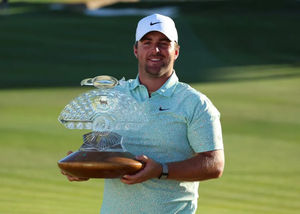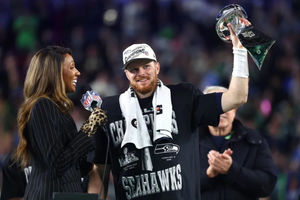Tell It To Your Analyst: The Raging Genius Of Earl Weaver

The first and obvious thing about Earl Weaver, for me, was that he was terrifying. I lived about seven blocks from Memorial Stadium, depending on how you walked it, and Junior Orioles packages were cheap, so my parents took my older brother and me to games all the time, from our youngest days. This meant that when I saw Earl Weaver lose his shit, I had never seen a grownup out of control before. Here was an adult—an old man, to my eyes, white-haired and stout and wrinkly—storming around screaming like a toddler, bursting with rage. It's all very funny and harmless on YouTube now, we're all big folks, but the first time my brother witnessed Weaver erupting from the dugout, he broke out in tears of alarm.
It would take much longer to realize that, even as we flinched at the prospect of him throwing another tantrum, Earl Weaver was filling our childhood with calm and security. We would wake up and check the Hartzell cartoon in The Sun and, six days out of 10, the Oriole bird would be laughing at another victory. I was in high school before I knew what it was like to root for a losing team.
Earl Weaver was a choleric buffoon and Earl Weaver was a clear-eyed mastermind, and if the noise in the foreground made people miss what was happening in the background, so much the better for him and his Orioles. The Oriole Way—much discussed in its absence, through the long recent years of losing in Baltimore—was not about metaphysics, and it certainly wasn't about hustle or some performative Right Way to Play the Game. It was, instead, a set of nuts-and-bolts procedures about how everyone in the Orioles system would actually go about playing the game: how to execute a rundown (always trail the runner, so it's over with one throw), how to run the bases, what to do in infield practice. No confusion and no surprises.
That was what teamwork meant to Weaver: players doing their work straightforwardly, in the service of a simple philosophy. "I stand by my belief that individual performances are the most important part of baseball," he wrote in Weaver on Strategy, first published in 1984. "Give me nine guys building good statistics, and I'll show you a good club." Weaver on Strategy is a blunt-spoken little volume that reads like a prophetic manifesto from the days when baseball analysts were solitary, unconsulted cranks—except that this particular prophecy comes with 1,480 major-league wins behind it.
When the news came that Weaver had died, at age 82, on a team cruise, I went straight to my copy of the book, on the left-hand side of the short self of the titles I return to most. Of all the epitaphs and epigrams he left for himself—"Pitching, defense, and the three-run home run," "The sorest loser who ever lived"—what stood out, as autobiography, were two passages, not far apart from each other. One was in his explanation of why the Orioles didn't use a hit-and-run sign ("because I believe it's the worst play in baseball"):
I used to be a pretty good hit-and-run man when I played in the minors. I handled the bat well and could hit the ball to the right side of the infield. Nevertheless, I know that you often give the opposition an out on the hit-and-run play.
And the other was in his meditation on the value of the home run:
The home run makes managing simple. Frank Robinson would come to bat with two guys on base. I'd yell, 'Hit it hard, Frank.' Frank would hit it hard and far, over the fence. Then he would come around the bases and back into the dugout. I'd say, 'Nice hit, Frank.' Now that is the ideal way to manage, and that's how people first decided I was smart.
Weaver's playing career, as a light-hitting second-base prospect, peaked with 13 plate appearances in Triple-A. But this is not the voice of a thwarted scrub, taking management as a chance to work out his old frustrations on more gifted players. It's a baseball intellect delighted at being set free from the limitations of one deficient body. God forbid his Orioles should play ball in the image of Earl Weaver—Earl Weaver sucked. Why would you want to scratch for one extra base, when you could swing for all four?
It could almost be mistaken for humility, though it was the opposite. Weaver saw so deeply into the game, to the fundamental probabilities and strategies, that he didn't need to put on a show of his thinking. Let that floppy-haired fellow in Chicago, the one with the J.D., twiddle the dials, run out his relievers for mid-inning lefty-righty switchups, treat the game as if every pitch were a product of managerial intellect. Weaver would pick his players and let them play, and his players would win, because he'd made sure they knew how to.
It's not that he was incapable of fiddling. The book delightedly recounts the stretch in 1980 where he wrote in pitcher Steve Stone as the starting DH every day, batting sixth, so he could hold back his real DH decision in case the first five Orioles hitters knocked the other team's starting pitcher out of the game. But cleverness was no substitute for brilliance—the kind of brilliance that reduced the game to principles: "Your most precious possessions on offense are your twenty-seven outs." "Don't play for one run unless you know that run will win a ballgame." "The key step for an infielder is the first one … but before the ball is hit."
And then he would find the players who could execute those principles. Nobody gets nine Frank Robinsons or Eddie Murrays to work with. So there was Don Buford, a .258 hitter for the White Sox, mostly from the two-hole—installed in Weaver's leadoff spot, where he posted a .385 on-base percentage and scored 99 runs three years straight. Twenty-seven outs. There were Gary Roenicke and John Lowenstein, hitting 33 home runs as a left-field platoon in 1982. There were Mike Torrez and Wayne Garland and Pat Dobson winning 20 games—changing speeds, throwing the high strike, trusting the defense behind them. The defense was where Weaver's handmade charts said it should be.
It took a huge ego to believe in this, when scarcely anyone else in baseball did. Weaver knew what he was doing, and he knew that he knew what he was doing, and he knew it would all go over the heads of the bunt-worshipping primitives he was up against. In his famous rant at umpire Bill Haller, immortalized on video in 1980, he snarls that he's going to end up in the Hall of Fame. "You gonna be in the Hall of Fame for fucking up World Series?" Haller sneers. The season before, the Orioles had led Pittsburgh three games to one in the Series, only to lose in seven—Weaver's third defeat in four trips to the World Series.
"I've won more than I've lost," Weaver snaps. No, he hasn't, Haller says, correctly. "GAMES! Count games!" Weaver yells. He's still wrong—overall, the Orioles went 11-13 in their World Series games under Weaver—but he's onto something. In the middle of a screaming, foul-mouthed rhubarb, he's making a sabermetric case. Across those Series, the Orioles scored 92 runs, while their opponents scored 90. As a matter of principle, they deserved to have won more than one. (Weaver on Strategy: "The bottom line is that over the long haul the best team usually wins. In a short series, anything can happen.")
The rhetorical subtlety was lost on the audience. There's no reason for anyone watching the video—let alone for those of us who witnessed similar performances unfold live, from our seats in the concrete horseshoe on 33rd Street—to see anything other than what's apparent: a crazed, salty old bantam, caught up in the moment, blind with fury. Yet even the tantrums were calculated. Weaver went after the umpires in full roar because he wanted to give them an easy target. Let them toss the manager, 90-plus times in his career, if it suited them. He'd be up in the clubhouse, smoking cigarettes, while the nine players he'd chosen were still on the field.
It was all common sense, at a time before people knew it was common sense. He had the notion that a big, agile third-base prospect could be moved to shortstop. So he went with his judgment, even as 21-year-old Cal Ripken Jr. was hitting .117 on May Day. History would vindicate the move with a Rookie of the Year award that season and then all the rest of the honors, piling up through two decades. And also, more quietly, what piled up were the outs, as Ripken used his size and that first step to cover more space on the left side of the infield than anyone else in the league. (Weaver, on defense: "To me a great fielder is one who makes all the plays look simple.")
Simple. It seemed, in those days, in that monumental and now-demolished ballpark, as if Weaver had always been there and always would be. Maybe the greatest shock, reading the obituaries, was the realization that when I first saw Weaver, the crusty old manager was barely older than I am today. His age was another illusion. Really, he was a boy wonder, breaking into the majors at 37 and retiring for the first time at 52, with a brief comeback ending at 56.
Without him, slowly and fitfully, the Orioles drifted backward, against the progress of baseball knowledge. Eventually, they became the team that would trade away Steve Finley, Curt Schilling, and Pete Harnisch for Glenn Davis, picking up a first-baseman with a .357 on-base percentage to replace Randy Milligan and his .408 OBP. Eventually they would play Deivi Cruz and Jay Payton, on their way to 14 straight losing seasons, bad teams with bad players getting bad results.
And then came this past season, and Buck Showalter shuffling his role players, working his best relievers into higher-leverage situations, sliding a big, agile shortstop project (big kids are shortstops now) over to third base and seeing him thrive defensively. Top to bottom, the lineup had guys who could pop one out. The pitchers kept it close till the All-Star outfielder hit it hard and far. It had the shape of a miracle, an unexpected thrill. But it didn't quite feel that way. It felt, as September arrived and the percentages tilted in the Orioles' favor, like things finally were making sense again.
Related
The NBA’s Tanking Problem Is Getting Worse — Not Better
NBA Picks Tonight: Three Best Bets Before the All-Star Break
The Biggest Question Facing Every 2026 MLB Contender
Best NBA Betting Picks for Wednesday Feb. 11th Slate
- Early Super Bowl LXI Odds Favor Seahawks, Sleeper Betting Picks & More
- Sunday Feb 8th NBA Picks: Three Best Bets Today
- Super Bowl Betting Preview: Seahawks vs. Patriots Breakdown & Pick
- The Most Fun Super Bowl Prop Bets You Can Make This Year
- Super Bowl 60 Prop Bets: 10 Best Bets for Patriots vs. Seahawks
- UFC Fight Night at the Apex Best Betting Picks and Predictions
- NBA Betting Picks for Friday Feb. 6: Post-Deadline Predictions












